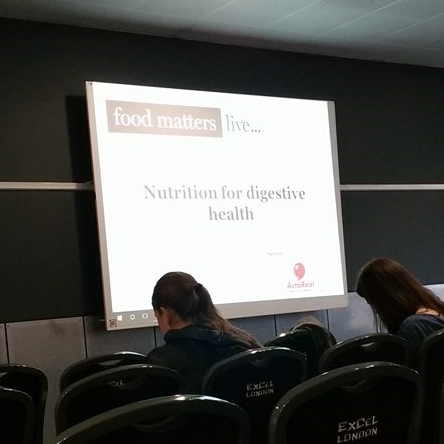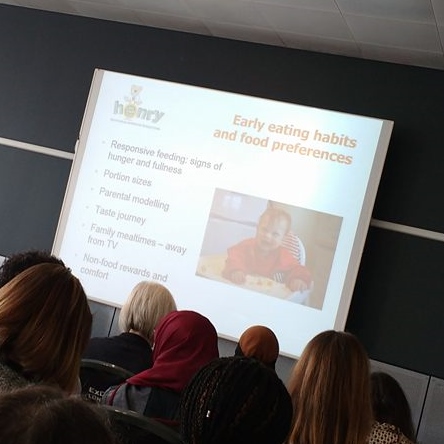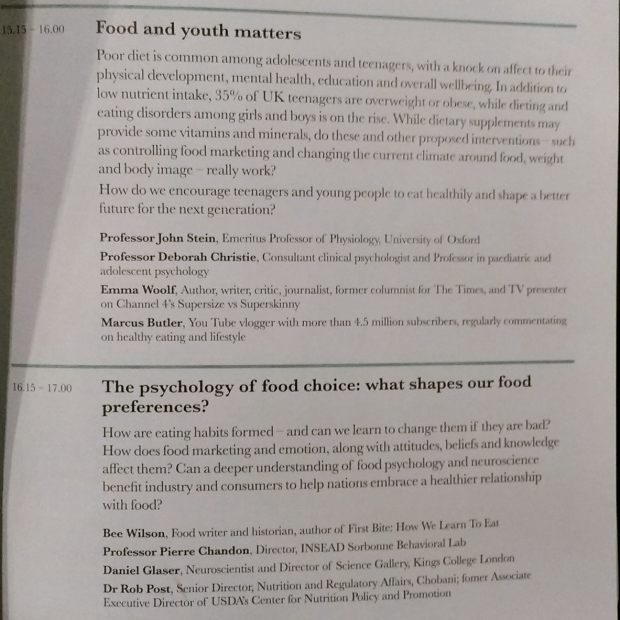These post are rather late due to deadlines, exams and research projects giving me no extra time! But this is the first of a few about the seminars I went to at Food Matters Live a few weeks (months now) ago. (See previous post)

Digestive health is an extremely interesting topic. The gut microbiota is so complex and there are diet-microbiota interactions and also brain gut connections! Digestive illnesses are very common and it is an area that researchers are still learning about.
What is next for Nutrition and digestive health?
The first talk ‘Market insight and trends for gut health ingredients shaping the digestive health market’ was presented by Ewa Hudson, Global head of health and wellness, Nutrition and ethical labels, Euromonitor international. She dicussed the growth and innovation of the growing digestive health sector.
Here’s what I learnt: Digestive health is the 3rd largest health trend within the health and wellness industry! It has shown to be equally important across key regions of the world. The top products are FF bottled water, probiotic yoghurt, high fibre breakfast cereal and sour milk drinks. Others include noodles, bread, pasta and biscuits. The top digestive health brand in the world is Yakult and then Activia. In Western Europe sales of probiotic supplements outpase sour milk drinks currently. The gap between sales of probiotic yoghurt and supplements is narrowing – supplement sales are increasing. Probiotic supplements currently have a retail value of $4 billion (2015) and growth is expected. In 2016 there was £10.5 billion worth of digestive remedies sales – including indigestion and heartburn remedies, laxatives, diarroheal remedies and IBS remedy etc. This was highlighted to show a need for improved preventative approach. Digestive diseases in the UK cause 49 deaths per 100000 people – this is quite high. In the UK Weetabix is the largest selling digestive health brand! (Most people would probably think it would be a yoghurt brand). Then it is oat so simple, Warburtons, Kingsmill, Hovis, Shreddies, Kellogs, Alpen, Dorset cereals. Think fibre! Weetabix don’t only focus on their fibre and wholegrain aspect of their products but also local production and responsible growing of their wheat with less fertiliser. It is thought that there is lots of opportunity in China for digestive health products. Looking into the future – food and mental disorders are on the rise and so are allergies, skin conditions, arthritis and autism – thinking about the gut as the second brain. As well as food and mood links involving the gut and brain axis. We are now more intuned with our bodies and adjusting diets. There has been a big rise in free from foods – likely to be the fastest growing health and wellness trend in the next 5 years. Free from in 2016 was worth £21 million globally and involves improving digestion as it includes many products free from dairy (big category), gluten, lactose. Finally, clean labels were discussed as a new idea for digestive health products.
The second speaker was Dr Megan Rossi a Research Associate at Kings College London. Next post to come will be information from her talk about IBS and FODMAPs…







